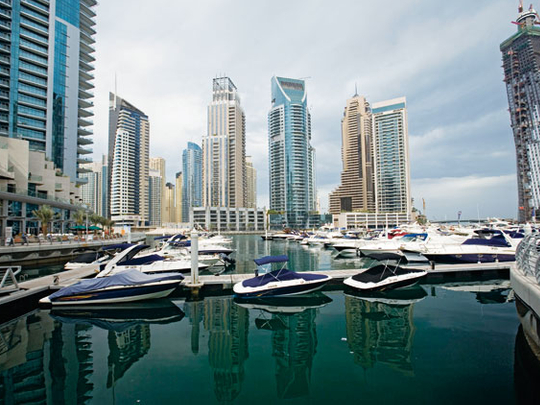
Q I purchased an apartment in Al Hamra Royal Breeze Complex in Ras Al Khaimah. The intention was to use it initially for rental income from golfing breaks, with a period set aside each year for my family and then to retire there, since my daughter lives in Dubai. I recently made enquiries with respect to entitlement to residence visa and e-Gate card once retired and was told that as per the new rules for freehold property, now property owners will get entry permit, which is renewable every six months. This would appear to indicate that foreigners purchasing residential property would no longer be entitled to a residence visa but instead will only be considered for a six-month renewable visit visa. I think this will have a significant effect on existing and potential investors in the UAE, although it is not clear to me whether this only applies to Dubai or other emirates as well. I need clarification on the issuesince it has already impacted our plans to purchase a second property in RAK. In the absence of clarification, we are now looking at options elsewhere.
A The issue of obtaining a residency visa through property ownership has been much misunderstood over the years. Previously, it was possible to apply to the Department of Naturalisation and Residency (the "Department") for a residency visa based on freehold ownership of property. The application procedure was facilitated by the master developers who, in some instances, established visa processing desks in their own offices.
In 2009, however, it was felt that the visa entitlement was being abused, and so a Ministerial Decision (281 of 2009) was issued, which is applicable across all emirates.
Under the new regulations, owners are allowed to apply for multiple entry visas valid for a maximum of six months. However, you can leave and reenter the country immediately after the expiry of the visa at which time it will be renewed for a further six months. There are however criteria that need to be met in order to be eligible for the multiple entry visa, as follows:
1. The property should be built up (as opposed to vacant land, for example);
2. Title to the property should be registered in the name of the individual applying for the visa;
3. The cost of the unit should be not less than Dh 1 million;
4. The unit should have capacity to accommodate the family members of the applicant;
5. The applicant and his family members must have medical insurance valid for at least the period of the visa;
6. The applicant must prove an income of not less than Dh10,000 per month (although it must be noted that the visa does not entitle the applicant to work in the UAE).
Very few of our clients have pursued this option, and your comments reflect the sentiment of many regarding the new regulations. Clearly therefore this is an area that the UAE Government could revisit in an effort to increase the number of investors and thereby provide a much needed boost to the real estate market.
As a side note, the Government of Ras Al Khaimah has decreed that non-UAE nationals may only own property in the Emirate in the name of a company incorporated in the Ras Al Khaimah Free Zone or the Al Hamra Island Free Zone (unless any special exemption has been granted). On that basis, you may wish to consider incorporating such an entity to hold the property, which could then sponsor you for the purposes of residency.
Q I filed a case against a developer at the Dubai International Arbitration Centre (DIAC). I also stopped making payments to the developer as per the payment plan after they breached the contract. My question is: will the Land Department, while arbitration is in progress, terminate my contract and register the apartment under the developer's name for non-payment in accordance with Law No. 13 of 2008? Or is the Land Department legally bound to wait until the dispute is legally resolved?
A Prior to terminating the Sale and Purchase Agreement (SPA), the developer is obliged to serve a notice of termination through Rera (Real Estate Regulatory Agency) notifying you of the alleged breach, giving you time to remedy the breach and giving you an opportunity to object to the termination on certain grounds.
Those grounds include: a) the developer has not issued a formal SPA; b) the developer has not linked instalment payments to construction progress; c) the specifications of the unit have materially changed; d) construction has been suspended for a period exceeding six months; e) the unit has not been registered with the Land Department. If you object, Rera should arrange a meeting between you and the developer at Rera's offices at which you can give further details of your objection.
At that meeting you can mention the ongoing DIAC arbitration and then request Rera to order the developer not to take any further repossession action pending the outcome of those proceedings.
For more information, contact www.taylorwessing.com
Do you have a legal question related to property that needs answering? Email property@alnisrmedia.com along with your contact details.











